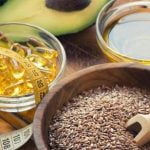
If you feel artificial sweeteners are a perfect substitute to sugar, you might want to think again. Marketed as ‘sugar-free’ or ‘diet option’, artificial sweeteners – commonly found in a variety of food and beverages, including soft drinks, chewing gum, jellies – give a person the same pleasure as sugar but reduce the calories.
But, are these popularly marketed sweeteners the right choice?
“People who are weight conscious or suffering from diabetes or cardiac problems usually prefer artificial sweeteners over table sugar as they are calorie-free. However, many would not know that these are made from chemicals and prolonged use of these sweeteners destroys your taste buds, thereby making your essential foods like nutritional fruits and vegetables unpalatable,” said Mohamad Yusuf N Shaikh of Kudrati Ayurved Health Center.
“Also, they increase craving for sweets and make people more inclined towards them. Later, precaution turns into the addiction to sweets, which leads to increased appetite and weight. So, if you take these sweeteners, consume them carefully,” he cautioned.
She added that a person consuming too much sugar-free foods can still gain weight if the food item contains other ingredients that are calorie loaded. For instance, in the case of diet soda or diet coke, sugar substitute can lower one’s risk of tooth decay, but the acid in diet soda could contribute to dental erosion.
So, are you now looking for some healthier alternatives to sugar?
According to Dr. Manjari Chandra, senior nutritionist, India Virtual Hospital, things such as cane sugar, palm sugar, jaggery, honey are better alternatives to sugar.
“Research suggests that synthetic sweeteners like Aspartame, Sucralose, Saccharin, Acesulfame Potassium and even Stevia might not be a great alternative to sugar. They could have a negative effect on gut microbes and thus lead to a higher risk of diabetes cause kidney injury, cancer and endocrine disorders,” she concluded.
[“source=hindustantimes”]

